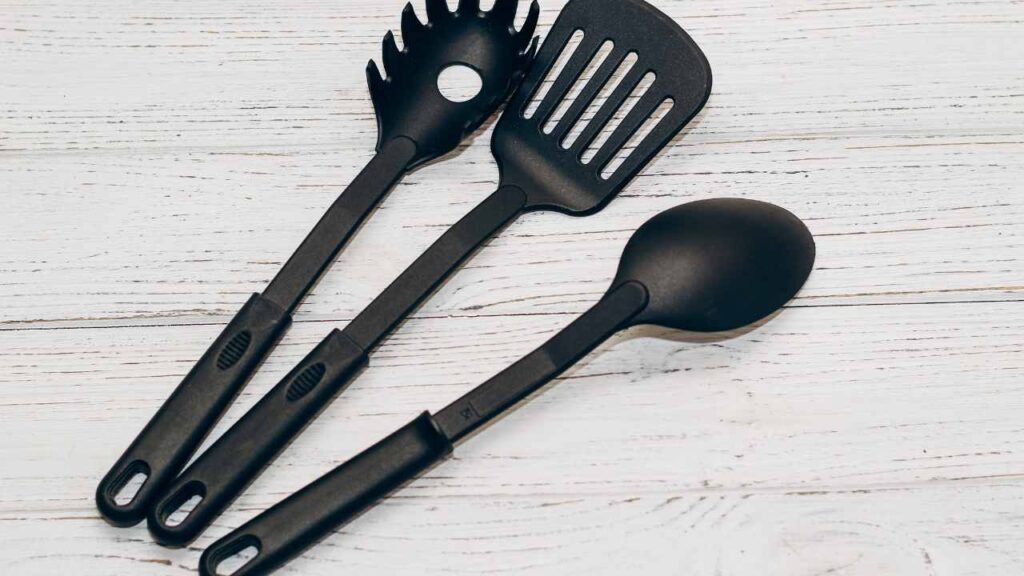Are they safe to use in your kitchen? Here’s what you should know.

They’re inexpensive, convenient, and available at just about every imaginable store — but those ubiquitous black plastic kitchen spoons and spatulas have sustained some reputational damage recently.
Some reports indicate that the plastic used to create these utensils can release potentially dangerous chemicals into food and cookware when heated to a certain point.
Should black plastic be blacklisted?
If you’ve been tempted to toss out your kitchenware because of such a report, you’re not alone. And even after you understand the potential risks, you might still want to replace all the black plastic in drawers and on countertops around your home.
But let’s take a balanced look at the issue to figure out what the risks actually are.
Specifically, scientists advise that certain flame retardants are used in some of these black plastics and can leak out. Since these chemicals aren’t suitable for human consumption, the fear is that exposure to them could lead to health issues like cancer or hormonal irregularities.
Additionally, environmental concerns arise from the fact that black plastics (often made from recycled material) are typically not recyclable.
What should you be using to cook?
In reality, the risks are probably pretty low. But if you want to be as safe and eco-friendly as possible, there are a few other materials that aren’t prone to the potential problems associated with black plastic.
Some recommended options include:
- Bamboo: Biodegradable and non-toxic
- Stainless steel: Recyclable and long-lasting
- Silicone: Good for cooking at high heat
And for those of you who are just too attached to your black plastic to make a change, you can minimize the risks of using these utensils by limiting how long they’re exposed to high temperatures and avoid using them with oily foods.



